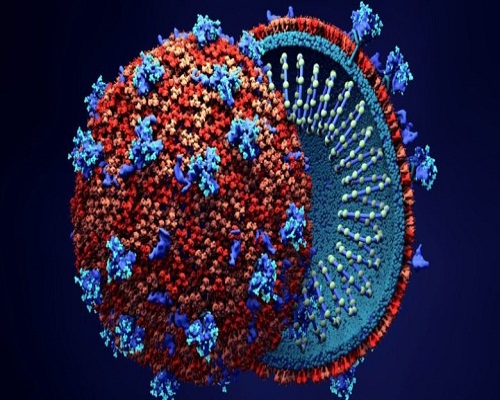How Magic Mushrooms Can Help Reduce Anxiety And Depression

Magic mushrooms are known as a recreational drug, but emerging studies are changing medical and public perspectives. Promising research shows that magic mushrooms may help treat depression, anxiety, chronic pain, and distress related to terminal illness with long-lasting effects.
Psychedelic Canada has been used for thousands of years by indigenous societies to cultivate spiritual experiences. These rituals persist today, with people reporting improvements in their spiritual connection and mental health. Modern science is exploring these ancient practices, and guided psychedelic treatment centers are on the rise as an accepted aspect of mental health treatment plans.
It is important to dose correctly and take the substance in a controlled and safe manner, or you can take too much and feel distressed at the shift in reality. Those interested in magic mushroom treatments should do their research and find a reputable source such as mushrooms Canada.
How Does it Work?
Psilocybin is the active ingredient found in more than 75 species of psychedelic mushrooms, including the most commonly known Psilocybe Mexicana or “magic mushrooms.” Psilocybin turns into psilocin after it is ingested, which is responsible for the drug’s psychoactive effects.
Psilocin works by stimulating 5HT2A, a serotonin receptor; this makes sense as problems with the operation and framework of 5HT2A are linked to addiction, depression, anxiety, and schizophrenia. Psilocybin also activates parts of the brain impacted by serotonin, which controls mood and anxiety.
Many species of mushrooms containing psilocybin also contain tryptophan-derived beta-carbolines, such as harmane and harmine. These have effects similar to antidepressants, as shown in an animal study. The beta-carbolines may block an enzyme called monoamine oxidase; monoamine oxidase inhibitors have been used for many years as an alternative to treat major depressive episodes when typical pharmaceutical methods were ineffective. Those who find that conventional antidepressant medications are not useful may see better results with guided doses of psychedelic mushrooms.
However, beta-carboline or other monoamine oxidase inhibitors can dramatically increase blood pressure. This increases the risk for illnesses associated with high blood pressure when foods with tyramine are ingested, such as cheese, beer, and wine.
This is called the “Cheese Effect” and further underscores the importance of taking psilocybin in safe, controlled environments so that any ill effects can be mitigated. Ensure you talk to your doctor and ask about your risks of high blood pressure-related ailments before taking the treatment.
What are the Benefits?
Research-backed and guided psychedelic experiences help many people with mental illness, chronic pain, or terminal diagnoses find relief and peace. Scientists believe that magic mushrooms allow the brain to open up to new ways of thinking and be more flexible to change. Patients let go of rigid ideas, ‘black and white’ mentality, and excessive worry. The drug engages the brain area linked to self-reflection, cultivating self-awareness, and broad, fresh perspectives to reduce suffering for those who are chronically ill.
What Does the Research Say?
A landmark 2016 study showed that psilocybin could reduce stress and anxiety in cancer patients for up to five years when administered with psychotherapy. Just a single dose can significantly reduce mental distress for years. An impressive 80 percent of the study subjects felt alleviation of their mental illness symptoms that lasted more than six months, and they suffered no adverse side effects.
Magic mushrooms can help people suffering from terminal illnesses come to terms with their diagnosis, reducing existential anxiety. Mental health is inextricably linked with physical health, and those suffering from depression and anxiety perceive their pain to be worse than people without these conditions. As a result, experts theorize that this treatment could reduce incidences of suicide among those with terminal illnesses.

Participants in this 2016 study also noted post-treatment improvements in energy, interpersonal relationships, and work performance. Some even reported increased feelings of altruism, inner peace, and connection to spirituality. All of these factors cause improved overall mental health and wellbeing. People suffering from terminal illnesses such as late-stage cancer may experience significant paradigm shifts through psychedelic experiences and come to a place of emotional understanding and acceptance that significantly improves their quality of life.
If You’re Thinking of Trying it…
Many people hesitate to take psychedelics due to fear of having a ‘bad trip.’ Most of these negative experiences are caused by taking too high a dosage or being in a negative environment, causing the recipient to feel distressed.
Guided treatment centers are a great way to avoid this by safely ingesting psilocybin in the correct dose and ensuring you have a positive experience through expert guidance.
One of the most significant barriers to popularizing magic mushrooms as a legitimate medical treatment is the stigma. As further studies emerge demonstrating their effectiveness and safety, the social stigma is shifting, and doctors promote psychedelic mushrooms as an alternative to traditional pharmaceutics.
The mounting medical evidence of psilocybin’s benefits cannot be ignored, and it is finally considered an acute remedy with a place in modern medical treatments. Hopefully, its popularization will help millions of people find relief from anxiety, depression, and chronic illness so they can enjoy a higher quality of life.





